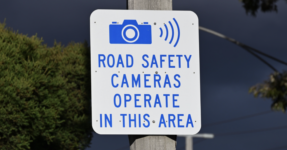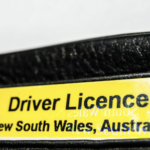To Which Traffic Offences Do Double-Demerit Points Apply?

Double-demerit points will be in force for four days over this long weekend as New South Wales celebrates the King’s birthday, with a public holiday on Monday 12 June, 2023.
When are double demerits in force?
Double-demerits will be in force from midnight tonight, Thursday 8 June, 2023 through until Midnight Monday 12 June, 2023.
In terms of the rest of 2023, double demerits will be in force on the following dates:
| Labour day | 29 September to 2 October 2023 |
| Christmas Day, Boxing Day and New Year’s Day | 22 December 2023 to 1 January 2024 |
What offences do double-demerit points apply to?
Double-demerit points apply to the traffic offences of:
- Speeding,
- Illegal use of mobile phones,
- Not wearing a seatbelt, and
- Riding without a helmet.
Police will be out in force
New South Wales police will be out in force on our roads and motorways this weekend, and thousands of fixed and mobile cameras will of course be activated across the state.
Fatalities tend to be higher over holiday periods because there are significantly higher numbers of cars on the roads, and this can lead to an increase in risky behaviour such as speeding and driving while fatigued.
What are ‘double-demerit’ periods in New South Wales?
When a ‘double demerit period’ is proclaimed, it means that the standard fine applies for these offences, but drivers will incur double-demerit points during the period. Interestingly, double-demerits only apply in NSW and the ACT during holiday periods. Because road rules fall under state and territory jurisdiction, each state and territory has their own schemes to encourage driver safety.
And while double-demerits were introduced in New South Wales in 1997, critics say there is little evidence to suggest they’re making the roads safer and they’re simply a revenue-raising scheme. Nevertheless they will be enforced this weekend, and drivers need to take care.
For example, driving through a red light is an offence in New South Wales (regulation 56 of the Road Rules 2014) which carries a fine of $457 and the accrual of three demerit points.
If a vehicle is detected by a camera running a red light and speeding to do so, then two offences have been broken and two penalties apply. While over the long weekend going through a red light would not attract double-demerit points, the speeding offence would.
Confused? A lot of people get confused by the double-demerits scheme. Essentially, the scheme works like this.
How do demerit points work?
Every licensed driver in NSW is allocated a specific number of points. You start with zero points – a ‘clean’ license. Demerit points are added to your record if you break the road rules, or are determined to be guilty of a traffic infringement.
- An unrestricted licence has 13 points
- A Professional driver has 14 points
- A Provisional P2 licence has 7 points
- A Provisional P1 licence has 4 points
- A Learner licence has 4 points
If a driver accumulates the allocated number of points or more than the number permitted within a three year period, then the law states that a driver will have their licence suspended. The suspension timeframe will depend on how many points you’ve accrued, and can last anywhere from three months to 6 months.
Police have the power to immediately suspend a license and are likely to use this power in very serious offences such as excessive speeding or drink and / or drug driving.
Mobile phones
Using a mobile phone comes with a $352 fine, which increases to $469 if in a school zone, and will attract 10 demerit points over the long weekend. Learner Drivers and Provisional (P) plate holders are not permitted to use phones at all while driving.
There are other offences which don’t strictly relate to the use of mobile phones, and include the use of other mobile devices such as ipads and DVD players, as well as Sat nav systems and apps like Google Maps. These can be complicated, so it’s important to understand the rules as they apply to both drivers and passengers.
Seatbelts and ‘overloaded cars’
After tragic recent road fatalities involving cars overloaded with passengers, police will also be cracking down on the use of seatbelts. Legally, a car can only carry the same number of people as there are seatbelts fitted by the manufacturer.
Anyone caught not wearing a seatbelt can expect a $352 fine and six demerit points.
Drivers are responsible for ensuring that passengers are wearing seatbelts and can face an on-the-spot fine of $344 in addition to 3 demerit points if a passenger is non-compliant.
The penalty increases to a $686 fine with 6 demerit points if there are 2 unrestrained passengers in the vehicle.
Riding without a motorcycle helmet
The offence of riding a motorcycle without an approved helmet and without a passenger attracts a $344 on-the-spot fine with 6 demerit points over the double-demerit period. The same penalty applies if:
- The motorcycle rider fails to ensure a passenger wears an approved helmet;
- carries more than 1 passenger;
- carries a passenger aged under 8 years
- does not sit straddling the seat, facing forward.
If you are issued with an infringement notice and you don’t believe you broke the law, you can contest the fine through Revenue New South Wales, or you can elect to take the matter to court.
It’s always worth getting professional traffic law advice if you do want to take the matter to court because if you are found guilty the court can impose much harsher fines than those imposed by police.







